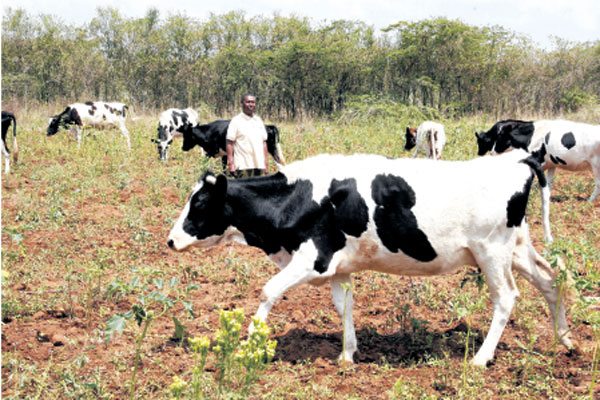The health of every animal on your farm is very important. Since there are various factors that affect animals, including transmissible diseases and the environment, how you manage them greatly determines their health.
In your case, you should revise your management strategies. A well-planned herd health management constitutes how you quarantine sick animals, good vaccination programme, nutritional regime, parasite control methods, minimising stress and other bio-security measures.
Unless you are sure of the source of new cattle, introducing any animal into your farm is a pathway to bringing in contagious diseases into your existing herd. Always buy your new animals from reputable breeder farms where you know the health history.
Raising your heifer means caring for the animal right from birth. Give the calf colostrum within 24 hours of birth as it contains important antibodies that will help the animal fight diseases. It is advisable to keep new animals in a separate pen for about two weeks just to observe it for diseases. Auction yards could also contain parasites like ticks, so be careful.
Your herd may look healthy but parasites, both internal and external can still invade them. External parasites such as flies and ticks carry diseases while internal parasites such as worms and flukes cause organ failures.
Acaricide applicators, for external parasites and anthelminths or dewormer drenches provide total solution against parasites. Regular deworming is necessary to break the worm’s life cycle and keep parasitism at the minimum, but avoid overdosing. Frequent acaricide application or dipping is also encouraged every week or after two weeks depending on the acaricide instructions.
Appropriate vaccination programme should be developed to prevent your herd from prevalent or devastating diseases. Your livestock environment is surrounded by other animal species, including insects and bacterial spores, which are sources of disease infection. Some of the diseases include rinderpest, anthrax, lumpy skin disease and foot and mouth disease. Vaccination is the only way to prevent these diseases, thus, should always form part of your total herd health plan. Vaccination will help keep your livestock healthy and eliminate the need for future antibiotic treatments. Administering them should always involve a vet.
Adequate and balanced diet is the cornerstone of cattle health as poor nutrition is the underlying cause of diseases. Your animals may get sick and get malnourished or have a mineral deficiency related problems, so ensure each animal gets sufficient balanced feeds and minerals to meet different needs.
It is also proper to have a bio-security plan in place to prevent diseases. You can put disinfectants at the farm entry point. Bio-security is important to protect your herd.
If you adopt all these, and keep your extension officer and veterinarian within reach, you will have a healthy stock.










